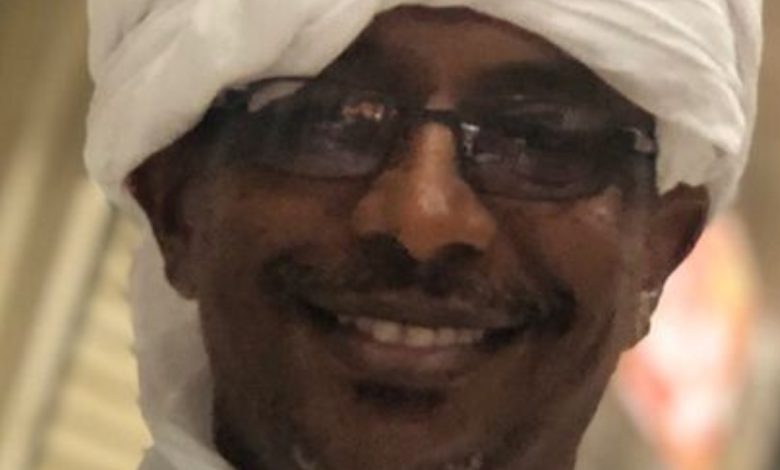A Reading of Abdul Rahim Dagalo’s Interview with Tasabeh Khater

By: Khalid Al-Bulola
I watched the interview conducted by the presenter Tasabeh Khater with Abdul Rahim Dagalo for Sky News. From the way the questions were posed, it seems that the circumstances of the interview and the channel’s agenda imposed specific choices on the presenter. This is a situation that a professional journalist avoids, as it lacks credibility and professionalism, and is evident when the journalist or media institution turns into a tool serving specific agendas.
Why did we say that?
Abdul Rahim Dagalo claimed that “the Sudanese army is made up of people from one village,” which is a clear falsehood. The Sudanese army is composed of individuals from various regions and tribes. After military training, all of them adopt a military doctrine aimed at protecting the country from internal or external threats. Some of its prominent leaders include Yasser Al-Atta from the Shaigia tribe of the Nile River State, Abdel Fattah Al-Burhan from the Jaaliyyin tribe of the Nile River State, Shamseddine Kabashi from the Nuba Mountains, and Ibrahim Jaber from the Zaghawa tribe in Western Sudan. These are just a few examples that show that the army, at the leadership level, does not represent just one region or tribe, but rather embodies Sudan’s diversity. This is also true for the senior ranks (General, Brigadier, Colonel), such as Major General Dr. Nasruddin Abdel-Fattah, Major General Abdelaziz Ahmed Abker, Major General Zafir Omar Abdel-Qader, and others from various parts of Sudan. Unlike the army, the Rapid Support Forces (RSF) are dominated by a family-based and tribal structure, specifically the Al-Dagalo family. Some of its key figures include Mohammed Hamdan, Abdul Rahim Dagalo, Adil Dagalo, Al-Qoni Dagalo, Jumaa Dagalo, and others, mostly from the Fula, Zaghawa, Mahariya, and Messiria tribes. The RSF relies heavily on tribal and family loyalty, unlike the Sudanese army, which integrates individuals from diverse geographical and ethnic backgrounds.
Abdul Rahim Dagalo also stated in the interview that the RSF is fighting “the Islamists and the remnants,” referring to the Islamists, despite the fact that these forces were created under the regime of Omar Al-Bashir, benefiting greatly from it. They were part of the previous regime’s security apparatus and received financial and military support from Al-Bashir’s government, along with economic privileges in sectors like gold and trade. Thus, claiming to fight “the Islamists” contradicts the fact that the RSF is a direct product of the regime it now opposes.
According to the political charter signed in Kenya, the dismantling of the June 30th regime (Al-Bashir’s regime) was one of its key points, yet it raises questions about how the RSF is now demanding the dismantling of a regime that empowered it. How did the RSF become a party in dismantling a system that was one of its main tools? And why has the dismantling committee overlooked questioning it about the origin of its wealth?
Abdul Rahim Dagalo, who holds the rank of General today, had no prior military experience. He was a simple worker in Darfur in 2003. With the formation of the Border Guards, which later became the RSF, he participated in the conflicts in Darfur, which helped him rise to the position of Deputy Commander of the RSF. Today, he denies the 1956 state that granted him power, despite being the reason for his rise to prominence.
Abdul Rahim Dagalo’s statements reveal clear contradictions:
He claims the army is made up of people from one village, while the reality proves its geographical diversity and inclusive recruitment.
He promotes the idea that the RSF is a national force, even though it is based on family and tribal loyalty.
He claims to fight “the Islamists,” even though the RSF was established under the Bashir regime and was its security and economic arm.
He signed a charter to dismantle the June 30th regime, even though this regime was the one that created and empowered him.
It is well known that the role of the journalist is to voice the concerns of those who have no voice and to ask questions on behalf of the audience. The primary function of the media is to provide the audience with information and opinions, keeping them informed about events in their surroundings. However, the presenter who conducted the interview with Abdul Rahim Dagalo deliberately avoided asking certain questions. Despite attempting to appear objective by asking some, the audience is more discerning than she thinks.
These contradictions highlight how the RSF’s media discourse shifts according to political and temporary interests, engaging in blatant misdirection. A perfect example of this is the statement made by the RSF’s spokesman, who was asked about the absence of Hemeti from a crucial event. He claimed Hemeti was involved in “important work,” ignoring the reality of the roles these forces play to serve internal and external agendas, both in the past and present.



